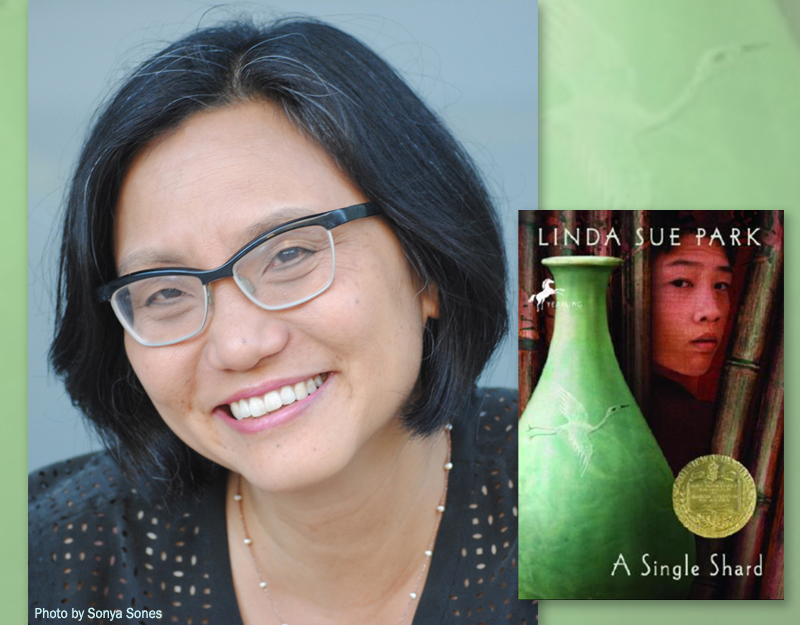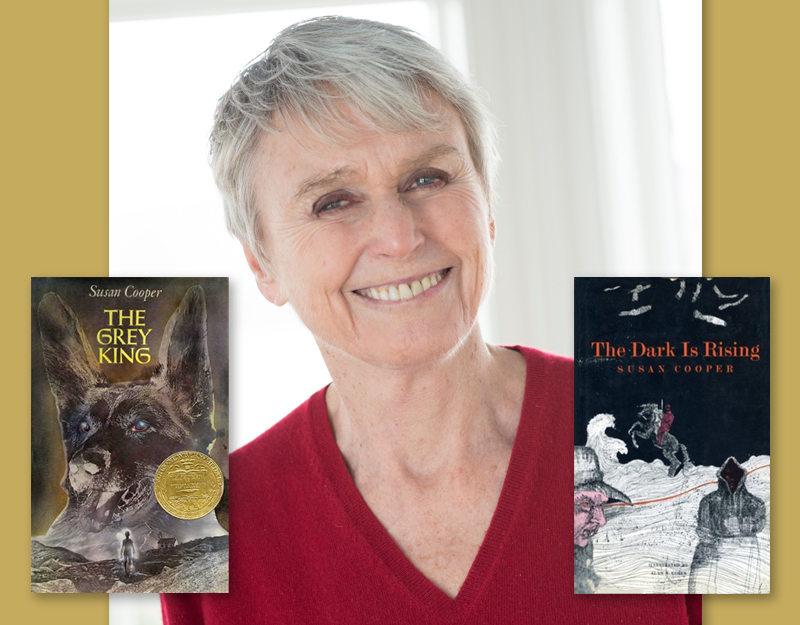It’s an Outrage!
Injustice is often self-evident, and does not need a heavy hand, and Stone’s repeated emphasis of it may rub some readers the wrong way. It may appear to them that she does not trust them to reach the obvious conclusion without her help. I welcome more discussion on these points for those of you who feel this book might be overly didactic.
ADVERTISEMENT
ADVERTISEMENT
And finally, since we’re quoting Roger Sutton, here’s something from a conversation with Virginia Euwer Wolff: "Didacticism in something we watch for in books for young adults. But the problem is not the teaching, it’s when it’s not convincingly worked into the world of the novel."
Filed under: Uncategorized
About Jonathan Hunt
Jonathan Hunt is the Coordinator of Library Media Services at the San Diego County Office of Education. He served on the 2006 Newbery committee, and has also judged the Caldecott Medal, the Printz Award, the Boston Globe-Horn Book Awards, and the Los Angeles Times Book Prize. You can reach him at hunt_yellow@yahoo.com
ADVERTISEMENT
ADVERTISEMENT
SLJ Blog Network
Name That LEGO Book Cover! (#53)
Cover Reveal and Q&A: The One and Only Googoosh with Azadeh Westergaard
Exclusive: Vol. 2 of The Weirn Books Is Coming in October | News
Fighting Public School Book Bans with the Civil Rights Act
Take Five: Middle Grade Anthologies and Short Story Collections
ADVERTISEMENT







(Do you mean Hudson rather than Nelson?)
I haven’t yet seen Almost Astronauts, but the title alone makes me figure that the author is going to be passionate about the injustice of these women not making it after many trials.
I’m eager to see it because there are all sorts of books that are just as didactic, but perhaps not as passionate. I far prefer a strong voice where the passionate is clear rather than one that tries to be neutral, but isn’t. On the other hand, I too don’t like books where the author goes over the top in his/her intense attempt to prove to me the reader his/her point. Very tricky balance!
The issue of didactic intent for Newbery is an interesting one. I tend to be put off more by fiction that has a too obvious didactic agenda than by nonfiction where the cards are more on the table, so to speak.
Monica raises a good point. Isn’t most nonfiction didactic by definition? I suppose there might be some nonfiction that is strictly for entertainment, but doesn’t most nonfiction at least want to inform you? So I would call nonfiction a form of teaching, almost by definition. It seems that people are taking issue with nonfiction that works too hard to persuade you a certain viewpoint is correct — with nonfiction, I would call that propaganda.
With fiction, usually the assumption is that it’s written to entertain. It’s didactic fiction when the purpose is more to teach or persuade than to entertain.
I’m trying to say that we shouldn’t fault nonfiction for trying to teach us. Isn’t that its main purpose?
Didactic is a word that means wildly different things to different people so I was hoping for more comments from Eric. In the meantime, I would love to hear your thoughts, Monica and Sondy, on this particular title once you have read it.
I edited Tanya’s book and I explicitly encouraged her to make her passion for the women and for the story of women and their rights evident. So I am partial. But I think Eric is misusing the term didactic. Didactic in the sense that the Newbery excludes has to do with educational intent as opposed to literary merit. In other words, no matter how worthy the intent of a book — standing up to bullies, dealing with divorce, coping with death, etc. etc. — the committee is take no notice. Instead it is to focus on how well the book is written. A beautiful, sensitive, heart-wrending potty training book could win so long as the committee was only considering the writing, not the utility. But Eric is not talking about utility, I think he means ideology — propaganda — the idea that the book is, under the guise of objectivity, bending facts, slurring over counter information, making a case instead of revealing a more messy and complex truth. Speaking as an interested insider, I can think of no case in which Tanya did that, or even thought of doing so. Still, for any NF — We Are the Ship, The Wall, American Plague — we should make sure the author has not hidden counterinformation. That would be not merely out of keeping with Newbery rules but with our most basic obligation as nonfiction authors.
On reflection, I realized that there is something else that bothers me about the imputation that Tanya was less than objective, that she somehow slanted her story to suit her preconceptions: sure she could have included more charts, diagrams, comparison stats. But in fact she did cite all of her sources, included an extensive bibliography, and received a glowing endorsement from the historian at the National Air and Space Museum who has written the academic book on the women. While I encourage every reader to ask questions, look for flaws, and suggest ways the book could have been better, I would think a first step would be for the reader to check where she got her information. Isn’t that what we ask of kids? The fact that a book leaves us with questions does not necessarily mean the book is flawed, instead it should send us out to hunt for answers.
I’m coming late to this discussion, but Eric raises some very good points and issues that should be addressed not only with Almost Astronauts but to all nonfiction being discussed. With no offense meant to Marc, Stone’s sources are less than impeccable. She did get a glowing endorsement from the Air & Space historian; but NASA historians have been less than complimentary. Specifically Roger Launius, long time noted official NASA historian has publicly called into question some of Sloan’s main sources: Martha Ackmann’s work and Stephanie Nolen’s. Even without investigating the sources (which is critical for awards committees — why didn’t Sloan get NASA’s side of the events?), the very title of the book (by the author’s own admission) is an outright lie. These women were not almost astronauts and is false to say they were. And the smoking gun: “let’s stop this now” from LBJ? There is no documentation to further prove what the intent was behind this statement. Can an author be a mind reader and still call it nonfiction. I pick on Sloan’s book only because it’s the one that’s received the most attention here. I would LOVE to see nonfiction seriously considered for a Newbery but I think accuracy is as critical a component as didacticism to consider and discuss. One last discussion question: is PC policing going on to favor books because the subject matter is worthwhile (and PC) rather than the writing being distinguished?
I just finished AA and liked it. I’ll be encouraging kids to read it.
Having said that, there were aspects of it that I didn’t like. For instance, I didn’t like the writing style very much. I thought that it was either passionate and urgent, or distant and stark, like reading a telegraph. The story itself was inspiring, but I was not inspired by the writing.
Jacckie Cochran is the real wild card in this book for me. I thought that the research and exposition in the book was credible, except for the section on Jackie Cochran. It seems like Stone is making a lot of assumptions about what Jackie Cochran was thinking and what her motives were, which is fine, but we were not presented with any other evidence. Was Cochran acting solely out of jealousy, or did she have a logical position? Was Jerri Cobb trying to shove Cochran aside? Stone also seems to be discrediting Cochran by revealing that she had a difficult early life, changed her name and left her past behind. I found it jarring to bring those aspects of Cochran’s personality up, and then not pursue them further. I thought that Cochran’s past was what made her a fascinating character. Stone opened the door a little bit, enough to make her point, and then slammed it shut. I know that she couldn’t go “off the rails”, as Jonathan pointed out, but if she was not going to go in-depth with Cochran, I thought that she should have left her out altogether. If she was that important in derailing the female astronauts, she was important enough to investigate fully.
Thanks for the discussions. I’m learning a lot.
I’m impressed by the level of detail that I’ve read on this blog about nonfiction accuracy. Can you tell us how that works in committee discussions, Nina or Johnathan or any other former members? What if one person comes up with legitimate concerns like Jane’s or Eric’s and the committee stuck in their private room maybe without the ability to explore the concerns all the way. So would a seed of doubt about accuracy be enough to make the committee just not want to go forward with a book? Or is the committee likely to have gone over all of that sort of thing before they meet?